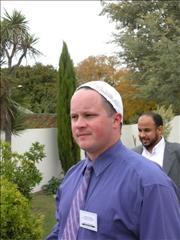 November 10 will mark the 72nd death anniversary of Gazi Mustafa Kemal Ataturk the Founder of modern Turkey, and an occasion to re-examine his political ideology known broadly today as Kemalism.
November 10 will mark the 72nd death anniversary of Gazi Mustafa Kemal Ataturk the Founder of modern Turkey, and an occasion to re-examine his political ideology known broadly today as Kemalism.
In view of the increasing legal obscurantism across the Muslim world in recent years, I believe there is an intellectual appeal to some aspects of his political secularism.
The ideas, perspectives and socio-political philosophies of Islamic countries influence New Zealand Muslims.
Beyond the basic “Golden Age” theocratic model of Prophet Mohammed (Peace be Upon Him) and his immediate epoch, there seem to be two or three main social and political models that Muslims around the world look for guidance and inspiration.
We should consider the Kingdom of Saudi Arabia and the so-called Wahabi or Salafi theological perspective.
We should study the Revolutionary Islamic Republic of Iran, which tries to combine Constitutional Republicanism (based on ancient Greek Platonic models) with Sharia-based laws with some measure of apparent success.
We should also consider the most neglected and boldly Secular Republic of Turkey created by Ataturk in the 1920s, where state and religion are sharply demarcated.
Ataturk was born in Salonia in 1880 and trained as a military officer within the Ottoman Empire. He was an important officer during the Turkish defence of Gallipoli in 1915. When the British, French, Italian and Greek armies tried to invade and occupy what remained of Turkey (1918 to 1922), Ataturk successfully reorganised the Turkish army and expelled them, earning himself the appellation ‘Gazi’ (warrior).
Constitutional Republic
Ultimately, he also seized power, declared Turkey a Constitutional Republic, expelled the Sultan and abolished the Caliphate, ending five centuries of Dynastic Monarchy.
He was faced with the problem of preserving the Turkish society and State.
He sought to create a pragmatic modern state modelled on the successful Western European countries as he perceived matters in the 1920s.
A new constitution was established, based on Swiss legal codes. The Latin-Roman script was introduced and a campaign was launched to remove Persian words from Turkish vocabulary. German architects were brought in to build a new Capital City at Ankara in Anatolia, Central Turkey. Women’s education was promulgated and freedom of the press established.
This measure of secularism is not to suggest that the Turkish Republic was atheistic, merely that it remained strictly neutral in religious matters.
The advantage for Believers (Muminun) in Turkey is that they are free to follow and practice religion, ideally, without any state interference and according to personal conscience. There is no Religious Police in Turkey to enforce one particular Mazhab or Tariqat. Secular Turkey remains a thoroughly Muslim land, with a Government Department run by professionally trained civil servants.
‘The Presidency of Religious Affairs’ was set up in 1924 to help administer Mosques, and train and provide salaries for the Turkish ulema.
Ironically, secular Turkey has become on the most important Muslim country internationally. The Secretary-General of the Organisation of Islamic Conference (OIC) is Professor Dr. Ekmeleddin İhsanoglu, a Turkish Science-Historian.
Rise of Secularism
In view of the ongoing political chaos faced by millions of Muslims resident in the Third World and the mass migration of Muslims into secular Western countries over the past few decades, Ataturk suddenly looks extremely prescient.
Whilst the Kemalist model is not perfect and there remain many legitimate criticisms (banning the fez in 1925 for example and ongoing disputes over the Hijab), I believe there are many positive lessons that we as Muslim minorities in the West could learn from the secular experiment in Turkey.
In the final analysis, the indisputable fact remains that the Secular Republic of Turkey is currently the most efficient and effective Muslim nation on earth.
Abdullah Drury is a former social secretary of the Muslim Association of Canterbury. He lives in Christchurch. Email: abdullah@xtra.co.nz





